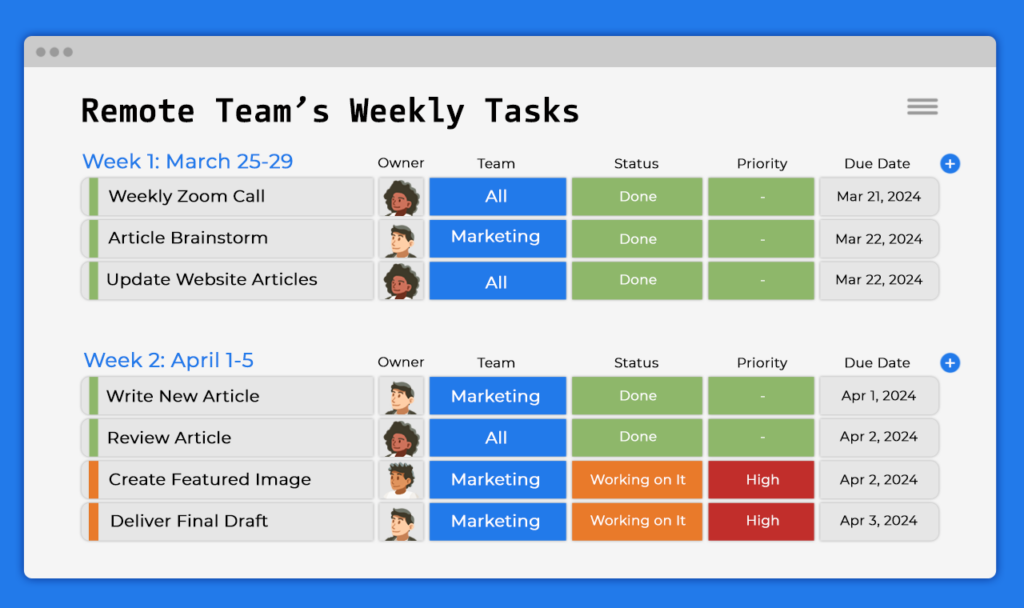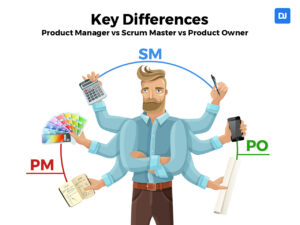Who you hire to fill a remote role will affect every aspect of your business, positively or negatively. As someone who has spent years building and managing remote teams, I’ve learned that cultural fit is just as important as technical expertise in ensuring the success of a remote workforce.
When a new remote team member joins the mix, your work environment, team dynamics, and even your bottom line will change.
What’s more, you can throw over $25,000 away due to a bad hire.
And with 75% of employers having hired the wrong person at one point or another, it’s safe to say that good hiring is an art.
While skills can be taught and developed, ingraining someone into a culture they don’t align with is far more challenging. That’s why it’s pivotal to find candidates who have the necessary skills your role requires but also embody the values and behaviors that define your company.
Find out below why hiring for cultural fit is so important, especially for remote teams. We’ll give you five key reasons to focus on cultural fit and provide some useful questions to ask during remote interviews to help you make the right choice.
What Does it Mean to Hire for Culture Fit?
Cultural fit refers to how well a candidate’s personal values, behaviors, and outlook align with the core values and culture of your organization. It is about finding someone who naturally fits into your company’s existing environment and work style, promoting seamless integration and team harmony.
According to a survey by Fierce, Inc., presented at the ASTD 2011 International Conference & Exposition, 86% of employees and executives cite a lack of collaboration or ineffective communication as the primary reason for workplace failures. This statistic underscores the critical role that effective teamwork and clear communication play in achieving successful workplace outcomes.
Hiring for cultural fit vs hiring for skills
Hiring for cultural fit is about ensuring that new employees share the organization’s values and will integrate smoothly, promoting a cohesive work environment, while hiring for skills ensures that employees have the necessary expertise to perform their job functions effectively from the outset.
Focusing on skills is straightforward when hiring, as they are clearly outlined on resumes and essential for minimal training. Skills are quantifiable and influence hiring decisions quickly, but integrating personal interests that align with the company’s culture can be equally important. Considering cultural fit—or even better, cultural add—is increasingly seen as critical in a remote environment.
Remote teams thrive on cohesion and shared values, as these traits significantly enhance collaboration in a virtual environment. In our experience, remote employees who align well with the team’s culture and are open to learning new skills tend to be more successful.
This approach allows you to onboard candidates who can be molded to meet the company’s standards and practices from the start, avoiding the challenge of retraining someone with incompatible habits.
Let’s take a closer look at five crucial reasons cultural fit is just as important as skills in remote hiring.
1. Cultural Differences Can and Will Kill Communication
In a remote environment with international employees, good communication skills are key to preventing information silos.
However, cultural differences heavily impact communication.
Imagine you contact a travel nursing agency to hire an international travel nurse. You’d be bringing in someone with different cultural norms, so you’d need to ensure their ability to adapt to your workplace environment.
Otherwise, your medical team may have trouble clearly communicating expectations and working together to take care of your patients. This puts your entire working environment and patients at risk.
The same applies to remote teams.
Remote team members working from different time zones and locations need solid communication to keep everyone on the same page.
When remote employees communicate well with each other, they not only feel better at work — they also feel more motivated to achieve common goals.
2. Culturally Fit Employees Will Love Working for You
When new employees joyfully settle into your company culture, they’ll naturally love working for you.
And happy employees are engaged employees.
Team members who feel connected to their organization’s culture report more engagement, less burnout, and higher job satisfaction.
3. Remote Employees Who Align With Your Company’s Culture Stick Around Longer
Employees who love working for you will likely stay at your organization longer.
According to the same Gallup study from above, employees who feel connected to their organization’s culture are less likely to be job searching or keeping an eye out for opportunities.
This means a headhunter would actively need to find them and present a very generous offer before they would consider leaving your company.
Considering how much it costs to replace a bad hire, finding the best culture fit during the interview process is a must.
4. Team Members Who Align With Your Remote Culture Feel Motivated to Help Your Company Succeed
Aligned employees affect your bottom line more than you might think.
How?
Team members who understand and align with your company’s purpose and culture can improve your business’s overall financial health.
Simply put, they believe in your vision. This inspires them to work hard to help your company succeed.
Remote companies that hire with a culture-fit in mind can find employees who:
- Have ideas that can help the company innovate, streamline, or improve
- Feel passionate about seeing the business score major wins
- Actively help the organization find business opportunities
- Brainstorm new ways the organization can win business
- Work to find innovative solutions to unique problems
- Work to widen the company’s customer base
- Love working for you
5. Hiring Poor-Fit Team Members Delays Projects and Affects Morale
Remote teams need well-defined timelines and organized systems to thrive.

But if you hire a poor-fit candidate, it doesn’t matter what skills, education level, or professional degree they have. They can still hold back your project.
That’s why it’s pivotal to know which green and red flags to look out for during the interview process. This will help you keep morale high and projects on track.
Here are some examples …
Green flags:
⏩ Has worked in a similar dynamic before (i.e., the same industry and company expectations).
⏩ Attends the meeting from their laptop or desktop computer with a clean and professional background.
⏩ Studied your company’s mission statement, years in business, accomplishments, etc.
⏩ Shows up in interview meeting rooms without audio or video connectivity problems.
⏩ Enjoys or values the importance of working with others toward a common goal.
⏩ Shows up in interview meeting rooms on time and prepared.
⏩ Feels eager and positive to learn more about your culture.
⏩ Clearly communicate needs, expectations, and concerns.
⏩ Has a kind and solution-focused communication style.
⏩ High attention to quality, details, and standards.
Red flags:
🔺 Attends the meeting from a smartphone in a loud public place with a chaotic background.
🔺 Shows up in the interview meeting rooms with audio or video connectivity problems.
🔺 Doesn’t ask you about your company culture, team dynamics, or work environment.
🔺 Doesn’t like the idea of team collaboration and prefers always working alone.
🔺 Didn’t take the time to learn about your company’s mission, stats, or wins.
🔺 Complaints about your company culture, work conditions, or processes.
🔺 Has little to no experience working in an environment similar to yours.
🔺 Struggles to clearly communicate needs, expectations, and concerns.
🔺 Has a poor or complacent attitude with no sense of urgency.
🔺 Shows up in interview meeting rooms late and unprepared.
Let’s examine some more common themes to look for when hiring, along with nine questions to help you spot culturally fit team members.
9 Culture Fit Interview Questions to Ask
After you’ve found candidates with the skills your upcoming project needs, it’s time to set up interviews to see how they would fit into your company culture.
To find culturally fit employees, you’ll need to look for aligned:
- Communication styles
- Personalities
- Attitudes
- Values
- Goals
You’ll also need to make sure the team members fit into your current work environment and team dynamics.
Here are some important questions to ask candidates to assess potential cultural and operational fit during the remote hiring process:
- What’s your communication style like at work?
- Tell me about your top work values.
- How would you describe your personality and attitude?
- What are some of your career goals?
- Are you familiar with a remote-first culture? Tell me about your unique remote work experience.
- How do you handle conflict in a remote working environment?
- What do you look forward to when it comes to working for a remote company?
- Why did you apply for this position?
- How would you handle the following scenarios?
(List at least three.)
For instance …
Scenario 1: Our head of security just contacted you to run an audit and propose updated cybersecurity strategies. What would your first response be? What would your next steps be? How would you finish and present your final proposal?
Scenario 2: Our app development director just sent you a brief for an upcoming app creation project. In the brief, you see the app’s theme, purpose, and a few details about how it should run. How would you respond to their email?
Scenario 3: You were supposed to work on a new project by yourself but just got word that three other team members will be joining you. What are your first thoughts? What are your concerns (if any)? How do you respond to the notice?
If any of this sounds intimidating — or you simply don’t have time, consider hiring a remote recruitment agency for support.
Why Use a Remote Recruitment Agency to Staff Your Next Project
When you hire a remote recruitment agency, they do all of the headhunting work for you.
They’ll not only look for employees who have the skill sets you’re looking for, but they’ll also scrutinize for cultural fit. This means they’ll tailor their approach to find candidates according to your unique cultural requirements so you don’t waste time interviewing poor-fit options.
They’ll also help you set up global payroll systems to streamline the onboarding process for international hires and your HR team. This includes setting up their direct deposits, benefits packages, employee tools, and more.
If you’re in a bind, don’t have experience with remote hiring, or need to find the right match for your project, consider reaching out to a remote recruitment agency like DistantJob today.
Wrap Up
Remote hiring requires a blend of creativity, skill, and deliberate planning.
By implementing the right remote hiring process, you’re aiming to select candidates who are not just technically proficient but also deeply aligned with your company’s cultural needs and value systems. This ensures you onboard candidates who possess role-specific talent and behaviors essential for high performance, ultimately helping your company to flourish.
This strategic alignment between hiring practices and organizational objectives is key to building a team capable of driving success in a remote work environment.
If you’re ready to find remote developers who stick around, complement your dynamics, and bring tremendous value to your business, DistantJob can help.
We’ll conduct a deep dive into your company culture to uncover the exact traits your candidates should have. We’ll even pre-interview people for you, so you can focus on the top 3% without doing any of the legwork.
With over a decade of remote hiring experience, we’ve got you covered.





